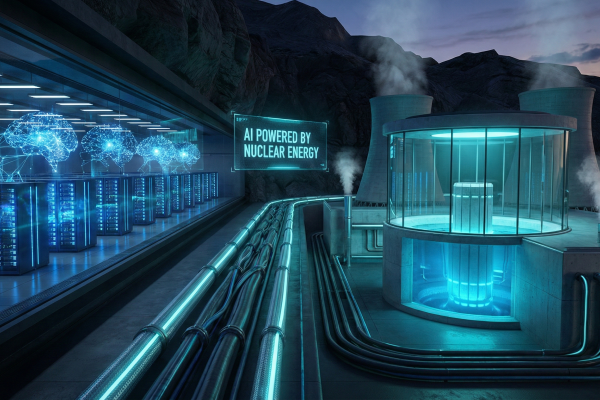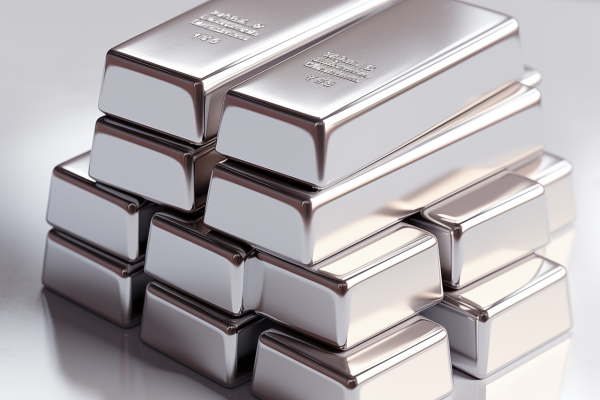September 9th, 2022 | 11:54 CEST
Defense Metals, Thyssenkrupp, Rheinmetall - New problems with critical raw materials
Many people are currently suffering from high energy costs, which are also affecting companies. Some of their products are becoming significantly more expensive as a result. Added to this is the smoldering trade conflict between the USA and China. Most recently, Nvidia was no longer allowed to export two of its chips to China. China and Russia are rich in raw materials and, in some cases, have a monopoly. There are already many critical metals whose demand can currently only be met by China. The most important of these are rare earths, over 90% of which are processed in China. The EU and the US are trying to become more independent but are encountering new problems. The critical metals industry urgently needs new skilled workers. In many companies, experienced engineers have long since reached retirement age. There is an acute need for action here.
time to read: 4 minutes
|
Author:
Armin Schulz
ISIN:
DEFENSE METALS CORP. | CA2446331035 , THYSSENKRUPP AG O.N. | DE0007500001 , RHEINMETALL AG | DE0007030009
Table of contents:
Author
Armin Schulz
Born in Mönchengladbach, he studied business administration in the Netherlands. In the course of his studies he came into contact with the stock exchange for the first time. He has more than 25 years of experience in stock market business.
Tag cloud
Shares cloud
Defense Metals - New drilling results coming soon
Rare earths are indispensable in many industries, be it for the production of smartphones, wind energy, LEDs, electric vehicles, aerospace, and the defense industry. The latter, in particular, has been on the rise since the outbreak of the Ukraine conflict. Defense Metals owns the Wicheeda project in Canada, which is 4,244 hectares and has significant high-grade rare earth deposits. The preliminary economic assessment (PEA) assumes a production capacity of 25,400 tons of rare earth oxide or about 10% of current global production. The value of the rare earths can be seen, for example, in the neodymium and praseodymium prices, which are currently 50% above the assumed price of the PEA.
On August 9, the Company announced the completion of infill drilling. A total of 12 diamond drill holes with a total length of more than 3,500 m were drilled. Results from the drilling are expected to be available no later than October. Meanwhile, geothermal drilling is still ongoing. If drilling results are positive, the indicated mineral resource could be increased from 5 million tonnes averaging 2.95% rare earth oxide (TREO) and 29.5 million tonnes of 1.83% TREO inferred. In parallel with the drilling program, flotation and hydrometallurgy will be optimized. In the fourth quarter, construction of the hydrometallurgy pilot plant is then expected to commence, and the pre-feasibility and environmental study will be initiated.
The Company has been taking ESG aspects to heart for a long time. On September 7, it entered into a mineral exploration agreement with the McLeod Lake Indian Band, part of the Tse'khene group of Native people. Chief Harley Chingee said, "The McLeod Lake Indian Band has always been open to working with companies that respect our rights, laws and conservation interests." So in the future, both parties will reap the benefits. The stock gained more than 50% at the peak after forming a double bottom of CAD 0.165. One share currently costs CAD 0.23, so the market capitalization is around CAD 42 million. Only a fraction of the PEA's after-tax NPV of CAD 517 million.
Thyssenkrupp - Good third quarter
Thyssenkrupp AG is active in automotive technology, industrial components, marine technology, steel and materials services. Steel production is a science in itself; rare earths are needed to give the steel certain properties. Most recently, the Essen-based group has been more concerned with energy supply. The steel industry is very energy-intensive, and since energy is not currently abundant in Germany, uncertainty spread, which in turn weighed on the share price.
Despite all the adversities, the latest quarterly figures presented by the Group on August 11 were impressive. Sales increased 26% YOY to EUR 11 billion, and order intake was also significantly better. Adjusted EBIT almost tripled to EUR 721 million. Further points of the restructuring were implemented, such as the reduction of personnel by a total of 4,440 employees. A positive development is the acquisition of the MV shipyards near Wismar by the Marine Systems division. The defense sector can certainly benefit in the future from the willingness to invest, and not only in Germany.
In order to be better prepared for the future, the Company's hydrogen sector is being developed. An IPO for the subsidiary may be on the cards in the future, which would bring additional money into the Company's coffers. The sale of the mining business to FLSmidth should also have brought in money. However, the Company did not provide any figures. After reaching the low for the year at EUR 4.82, the share has developed a sideways phase that extends to EUR 6.16. Currently, EUR 5.91 is due for a share certificate. After the announcement of the figures, there were four buy recommendations with price targets between EUR 13.00 and EUR 19.40.
Rheinmetall - 2 new orders in September
Rare earths are elementary for the defense industry. Weapons systems require this critical raw material, as do communications systems. Consequently, Rheinmetall is also dependent on rare earths to meet the currently rising demand for armaments in the future. The German armed forces in particular could place larger orders in the future, as they have more than EUR 100 billion in special assets at their disposal. While the defense sector is booming, the situation in the automotive sector is weaker. Supply chain problems play a role here, as does the fact that many customers currently prefer not to buy a new car.
Having recently lost two orders from the Czech Republic and Slovakia, the Düsseldorf-based company is now focusing on the 4 billion order from Australia for Lynx infantry fighting vehicles. The contract is expected to be awarded in the fall. If the order fails to materialize, there could be write-downs on production equipment. However, the Company has already landed two orders in September. The US Army has ordered longer-range artillery propellants. A major European NATO force has ordered HERO Loitering ammunition worth a single-digit million euro figure. Follow-on orders beckon here.
A comprehensive analysis on the Company can be found at researchanalyst.com. As sales in the defense sector are expected to more than double, the weakness in the automotive sector is negligible. The share has initiated consolidation after testing EUR 224 several times. Currently, the share is trading at EUR 154.05. Supervisory Board member Ulrich Grillo considers this too low and has recently bought shares worth a good EUR 47,000.
The dependence on China, especially for rare earths, could cause serious problems in the event of a possible Taiwan conflict. The example of gas in Germany shows where this undersupply can lead. It would be desirable that Defense Metals can go into production as soon as possible. Gaining 10% of the currently produced rare earth would be a big step. Thyssenkrupp, like Rheinmetall, is dependent on rare earths if it wants to produce high-quality steel and defense equipment. The problems should be tackled before they arise.
Conflict of interest
Pursuant to §85 of the German Securities Trading Act (WpHG), we point out that Apaton Finance GmbH as well as partners, authors or employees of Apaton Finance GmbH (hereinafter referred to as "Relevant Persons") may hold shares or other financial instruments of the aforementioned companies in the future or may bet on rising or falling prices and thus a conflict of interest may arise in the future. The Relevant Persons reserve the right to buy or sell shares or other financial instruments of the Company at any time (hereinafter each a "Transaction"). Transactions may, under certain circumstances, influence the respective price of the shares or other financial instruments of the Company.
In addition, Apaton Finance GmbH is active in the context of the preparation and publication of the reporting in paid contractual relationships.
For this reason, there is a concrete conflict of interest.
The above information on existing conflicts of interest applies to all types and forms of publication used by Apaton Finance GmbH for publications on companies.
Risk notice
Apaton Finance GmbH offers editors, agencies and companies the opportunity to publish commentaries, interviews, summaries, news and the like on news.financial. These contents are exclusively for the information of the readers and do not represent any call to action or recommendations, neither explicitly nor implicitly they are to be understood as an assurance of possible price developments. The contents do not replace individual expert investment advice and do not constitute an offer to sell the discussed share(s) or other financial instruments, nor an invitation to buy or sell such.
The content is expressly not a financial analysis, but a journalistic or advertising text. Readers or users who make investment decisions or carry out transactions on the basis of the information provided here do so entirely at their own risk. No contractual relationship is established between Apaton Finance GmbH and its readers or the users of its offers, as our information only refers to the company and not to the investment decision of the reader or user.
The acquisition of financial instruments involves high risks, which can lead to the total loss of the invested capital. The information published by Apaton Finance GmbH and its authors is based on careful research. Nevertheless, no liability is assumed for financial losses or a content-related guarantee for the topicality, correctness, appropriateness and completeness of the content provided here. Please also note our Terms of use.




